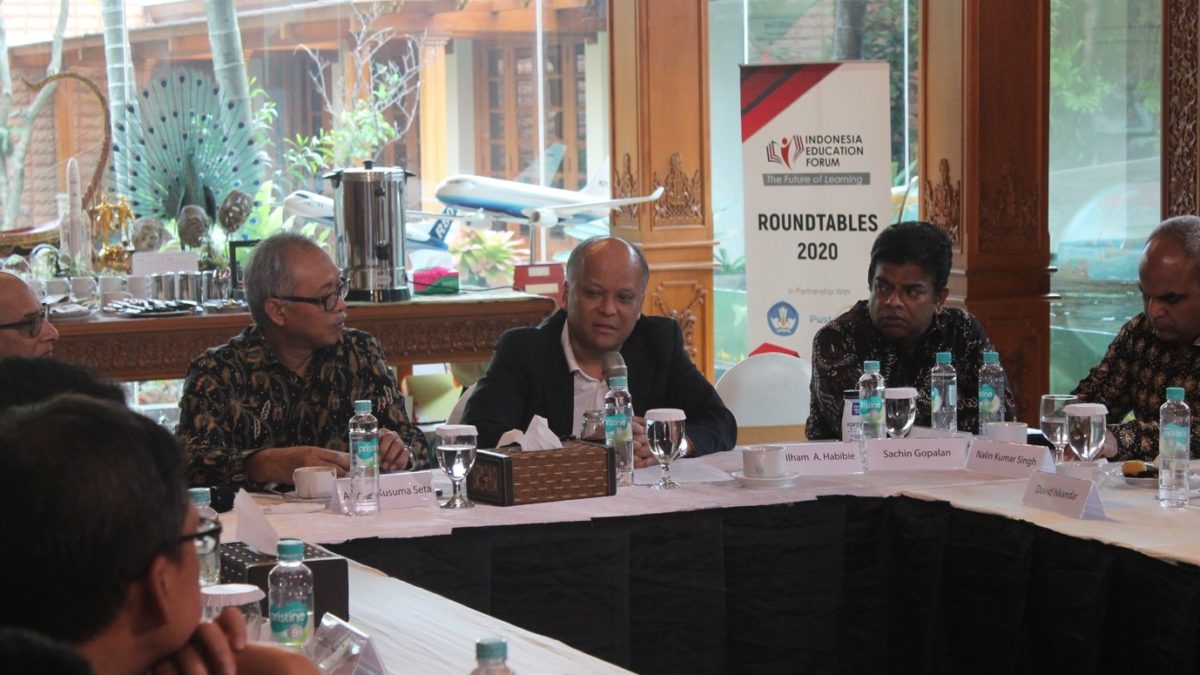Across the world, countries are facing an acute shortage of teaching talent. A combination of factors including fewer young people wanting to be teachers; low salaries; digital disruption and an exploding population have led to the current situation.
According to the UN Educational, Scientific and Cultural Organisation (Unesco), by 2030, 69 million teachers will be required to teach primary and secondary level education across the world. As there are only 20 countries with populations larger than 69 million, the demand for teachers will be greater than the populations of most countries.
Indonesia too is facing a teaching crisis. The country does not just lack teachers, even those who are already in the profession and not adequately qualified. With President Joko Widodo’s push to improve the quality of human resources over the next five years, solutions need to be found to solve this challenge.

Minister of Education and Culture, Nadiem Makarim has proposed a list of reforms including the Merdeka Belajar program (Freedom to Learn) which emphasis the role of education in the development of human resources and attempts to reduce state control and provide more autonomy for teachers and schools.
The table shows the new reforms under the Freedom to Learn Initiative. Source: Ministry of Education and Culture Table: Jakarta Post
Education Expert, Totok Amin Soefijanto of Paramadina University, however, is doubtful that all teachers will be able to live up to the task. Soefijanto said that out of the three million teachers in the archipelago, only a small portion of teachers are ready for change, most of them are found Java, Bali and some in Sumatra and Sulawesi. Whereas the larger number of the teachers do not have a bachelor’s degree and have not been certified. He continued to point out their lackluster pedagogy, which is an issue as pedagogy is the core process of education.
An Uphill Battle
To address these challenges, the Indonesia Education Forum hosted a roundtable in March 5th, 2020 themed “21st Century Teacher: Going Beyond Technology” at the Habibie-Ainun library as part of its ongoing efforts to forge greater public-private partnerships in the education sector.
Former Senior Advisor to the Minister of Education and Culture, RI, Ananto Kusama Seta echoed Soefijanto message of teachers being unqualified and in need of a mind shift. He also noted that most of them are not tech-saavy which is not ideal in an increasingly digitized world and with Gen Z’s tech native students.
No longer is the authoritative lecture-based method acceptable, however, teachers are either finding it difficult to transition to a 21st century-based approach or that teachers and universities are unwilling to diverge from the status quo.
A speaker from Supriyana, PGRI, pointed out a reason to why teachers might not be able to keep up with 21st century expectations. Their basic requirements are not met. Systemic problems such as teachers being underpaid are still prevalent. One case reported in the media concerned a contract-based teacher in Bantan living in the school’s toilet building. Both the teacher and her spouse live in the building as they are unable to afford to live anywhere else, not with her Rp 350,000 (US$25) salary per month (among doing other odd jobs).
Aditya Wardhana, from Telkom University, agreed with this sentiment and reinforced that one of the primary issues is unfulfilled basic welfare of teachers.
In order to upgrade the education system, innovative solutions need to be explored. Jaspal Sidhu, Founder and Chairman of SIS and Inspirasi Group of Schools, proposed that teachers should expose themselves in the private sector through internships. “Solutions for teachers are found outside of the private sector,” he added. This allows teachers to get a better sense of what in demand skills are needed for their students and plan accordingly.
A possible solution to qualified teacher recruitment was also provided by Hiregrade, an education and recruitment-technology platform. The company seeks to simplify the process between job seekers and employers through a psychology assessment tool to read someone’s interest in three areas: cognitive, social, and entrepreneurship.
Learning from Other Countries
Given the fact that other countries also face severe teacher shortages, Indonesia should look at the experience of countries such as Finland and Singapore where teachers are highly respected and valued. In Finland, it is harder to gain entry to the University of Helsinki’s teacher training program than the law program or the medical school. This was because the work itself, working conditions and respect for teachers as they are given the space to be autonomous, collaborate with colleagues and engage in educational research, development and design.
Because the profession is highly respected, Singapore recruits its teachers from the top third of high school graduates and pays them salaries on par with accountants and engineers in the civil service.
Without highly qualified, motivated and well remunerated teachers, Indonesia risks not only attracting less talent into the teaching profession but limiting the potential of its human resources over the next decade.

